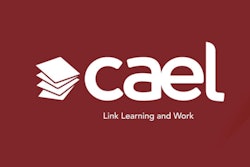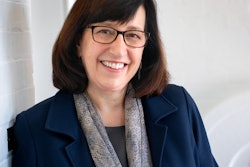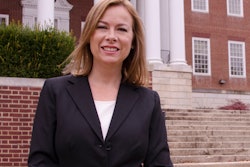On the last Sunday before graduation, ministers who are alumni of Spelman College held their hands up to their computer screens from their respective homes across the country. They were participating in a virtual laying on of hands ceremony for the historically Black college’s senior class. They read blessings they had written for the graduates and a student involved in the campus chapel shared a reflection.
“It was just an outpouring of spirit, an outpouring of love,” said Rev. Dr. Neichelle Guidry, dean of the chapel at Spelman College. “By the time it was over, I was ugly crying. There wasn’t a dry eye on the Zoom call.”
When classes pivoted online in response to the COVID-19 pandemic, so did chaplaincy, and campus faith leaders have been getting creative to continue remotely supporting their diverse student communities.
It hasn’t been easy. Yale University Chaplain Sharon Kugler said chaplains from her campus spent a total of 175 hours virtually meeting with students the first week back from spring break.
 Rev. Dr. Neichelle Guidry
Rev. Dr. Neichelle Guidry“It kind of blew up,” she said. “The volume really swelled.”
Buddhist meditation classes drew larger online crowds. Alumni joined students’ weekly interfaith dinners on Zoom. The Muslim chaplain’s halaqa, or study group, “probably tripled in size” online.
And chaplains aren’t just running online events and counseling students virtually. As the founder and executive director of Convergence, an organization that promotes religious diversity in higher education, Dr. J. Cody Nielsen has heard from chaplains who helped pack up students’ belongings as they left for home, advocated for international students who couldn’t leave and even checked on a student’s aquarium in an abandoned dorm room, in addition to their regular tasks.
Chaplains are “under water” responding to students’ basic needs and on the “frontlines” of advocating for them, Nielsen said.
And like faculty, chaplains also struggled with the logistics of getting online. Sister Ann Howard, director of campus ministry at Trinity Washington University, took the first two weeks of remote learning just to figure out how to video conference to continue meditation and Bible study groups.
The pandemic has led campus faith leaders like her to look for new strategies to offer programming and support.
For example, Howard found ways to continue students’ service work remotely. Over the summer, she’s remotely facilitating the Sr. Seton Cunneen Summer Fellowship, which usually pays for students to take on 10-week community service projects with nonprofits over the summer. Students will now be working remotely for the Catholic Legal Immigration Network; Sisters Safe Circle, an organization for victims of domestic violence; and Hope Community Center, which works with migrant farmworkers.
Via weekly Zoom reflections, “I’ll get to walk right with them,” she said.
Guidry described the shift online as a fruitful time to “become collaborative in our ministry” through new partnerships. For example, when their campuses moved online, she and Rev. Dr. Dominique Ayesha Robinson, the dean of chapel at Wiley College, started doing a joint Sunday broadcast, connecting students from the two historically Black institutions.
 Dr. Eboo Patel
Dr. Eboo PatelAt a time when universities are tightening their budgets, Dr. Eboo Patel, the founder and executive director of Interfaith Youth Core, a nonprofit for interfaith cooperation, emphasized the value of campus faith leaders.
“The work of finding purpose and meaning is more important now than ever, and the work of building community is more important now than ever,” he said. “We are absolutely in an economic crisis, but we’re also in a purpose crisis and a community crisis.”
Patel sees practical benefits to fostering intrafaith and interfaith work on campus, as well, like preparing students for an increasingly religiously diverse workforce. He described religious literacy as a “skill set” for students’ future careers that shouldn’t be hampered by the pandemic.
“Think of a typical healthcare situation,” he said. “You have a Muslim doctor working with a Jewish anesthesiologist, supported by a Baptist nurse in a hospital started by a Catholic religious order run by a secular humanist who grew up in an evangelical tradition. That’s everywhere every day. How are [students] being prepared to work well within that kind of diversity?”
Plus, at a time when colleges fear a dip in enrollment, chaplains can help recruit a “broader range of students” by “identifying pockets of religious diversity [campuses] might have overlooked, like Muslim private schools or families that do religious homeschooling, he added.
Too often, religion is left out of campus diversity conversations, because administrators feel a “skepticism around religion” and what it can add to campus life, Nielsen said. But for religious students, “the data shows that when they’re able to bring their whole identity to their learning experience, they have better academic success and better overall satisfaction with their institutions.”
Kugler hopes chaplains can be seen as a resource not only for students but for university leaders as they make plans for the fall semester, keeping in mind the ways diverse students are wrestling with anxiety and grief.
“We need to be able to remember to lift up the human stories in all this,” she said. Chaplains can help by “encouraging campus leaders to understand the moral questions around all of these decisions, the ethical complexity among all of it. I think higher education is not going to return to the way it was, and that may not be a bad thing if we look at it imagining a better whole.”
Sara Weissman can be reached at [email protected].















